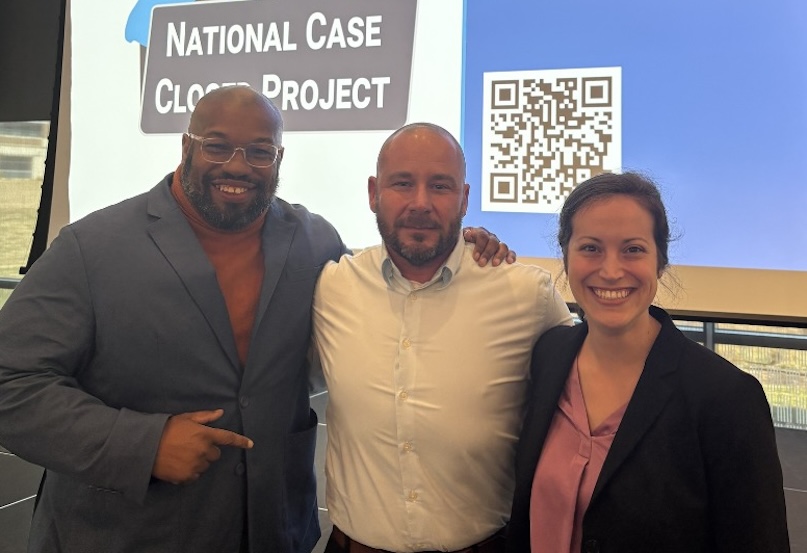Chattanooga Police Department shares success in solving violent crimes at National Case Closed Project Convening
Chattanooga, TN – The Chattanooga Police Department, along with the City’s Office of Community Safety & Gun Violence Prevention, was invited to present at the National Case Closed Project Convening in Raleigh, North Carolina earlier this week. This invitation, extended by the Bureau of Justice Assistance and RTI International, recognized Chattanooga’s innovative approach to solving violent crimes, which boasts a clearance rate 18% higher than the national average.
In 2023, Chattanooga achieved a clearance rate of 59% for severe violent crimes such as homicide, rape, robbery, and aggravated assault. This is significantly higher than the national average of 41%, as reported by the FBI. As of 2024, Chattanooga’s clearance rate stands at 54%, with national data for the previous year still pending.
Three key representatives from Chattanooga’s public safety efforts participated in separate panels, showcasing the city’s work in solving violent crimes, supporting victims, and fostering positive relationships between the community and law enforcement.
Sgt. Josh May, the nation’s only active sworn subject matter expert in Crime Gun Intelligence, represented CPD on a panel focused on technology in investigating shootings. He highlighted the department’s efforts in implementing advanced strategies, including the formation of the CPD Gun Team in 2017. This team has since become one of the leading NIBIN (National Integrated Ballistic Information Network)-centric units in the country and was recognized as one of the top three Crime Gun Intelligence Centers (CGIC) in the U.S.
Director Hannah Walling, head of CPD’s Victim Services Unit (VSU), shared her insights into the importance of victim support in solving violent crimes. Walling detailed how CPD’s victim services specialists offer essential services, including safety planning, court accompaniment, and social service referrals, to help victims and their families cope with the aftermath of crime.
Troy Rogers, the City of Chattanooga’s Public Safety Coordinator, rounded out the city’s representation by participating in a police-community engagement panel. He spoke about the city’s successful initiatives aimed at building trust with young people and providing alternatives to violence. Key programs include community canvassing, weekly basketball nights, mentorship opportunities, and job fairs for individuals returning to the workforce.
The NCCP Convening also served as a platform for sharing ideas, strategies, and experiences with stakeholders from across the nation, further contributing to the collaborative effort to reduce violent crime and strengthen public safety nationwide.

